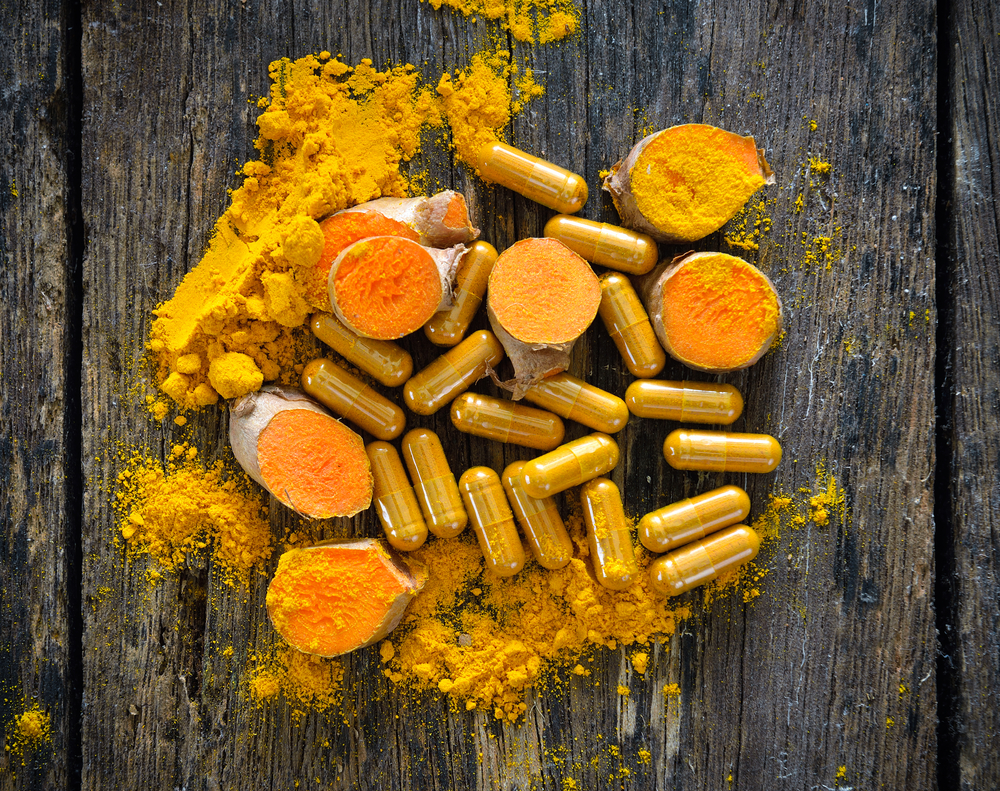Health Tips: The Amazing Benefits of Turmeric
by Karen Rollins Mar 11, 2019

Turmeric is a spice which is a cousin to ginger. It is frequently used to flavour or colour mustards, butters, and cheeses and even cosmetics and perfumes, and is also what gives curry its yellow colour.
In India, turmeric has been used for thousands of years in food and is also well known for its medicinal properties which are largely due to bioactive compounds called curcuminoids, the most important of which is curcumin.
Curcumin has powerful anti-inflammatory properties and is a potent antioxidant which can be beneficial for the brain and body.
What are the benefits of turmeric / curcumin?
Curcumin is a natural anti-inflammatory compound which fights chronic inflammation. Chronic inflammation is believed to be the root cause of several illnesses including heart disease, cancer, and Alzheimer’s.
Turmeric is also a strong antioxidant, which can block free radicals due to its chemical structure, while also boosting the activity of the body’s own antioxidant enzymes.
In relation to the brain, curcumin has also been proven to support increased levels of a hormone called brain-derived neurotrophic factor (BDNF). BDNF plays a key role in the brain’s long-term cognitive ability and low levels of it have been linked to age-related illnesses such as dementia.
Several small scientific studies have also found turmeric can be beneficial for treating arthritis, Crohn’s Disease, and depression.
How can you get the most out of turmeric?
Unfortunately the curcumin content of turmeric is not that high, so if you want to get the full effect you’ll need an extract or supplement.
In addition, curcumin is poorly absorbed into the bloodstream, so it helps to consume black pepper with it. Black pepper contains Piperine, a natural substance that enhances the absorption of curcumin by 2000%!
It may also be a good idea to take curcumin with a fatty meal because it is fat soluble.
Turmeric can be consumed in a tea, or added to smoothies, soups, and salads, but remember to add some pepper if possible to aid the absorption of the spice’s chemical compounds.
Below is a quick recipe for Turmeric tea:
Ingredients:
*2 cups of milk of your choice such as almond, pecan, coconut
*1 tsp turmeric
*½ tsp cinnamon powder
*pinch of ground black pepper
*tiny piece of fresh, peeled ginger root or ¼ tsp ginger powder
*pinch of cayenne pepper (optional)
*1 tsp raw honey or maple syrup or to taste (optional)
Method: Blend all the ingredients in a high-speed blender until smooth. Pour the contents into a small saucepan and heat for 3-5 minutes over a medium heat until hot, but not boiling – drink immediately.
Is turmeric / curcumin safe?
Turmeric and curcumin are general considered safe but it is always advisable to carry out some research before buying any type of supplement.
You should also consult your doctor if you are on medication, because turmeric and curcumin can affect the way certain drugs interact with the body.
Sources: Healthline / BBC Good Food / MindBodyGreen.com / WebMD Boots / Wellness Mama








